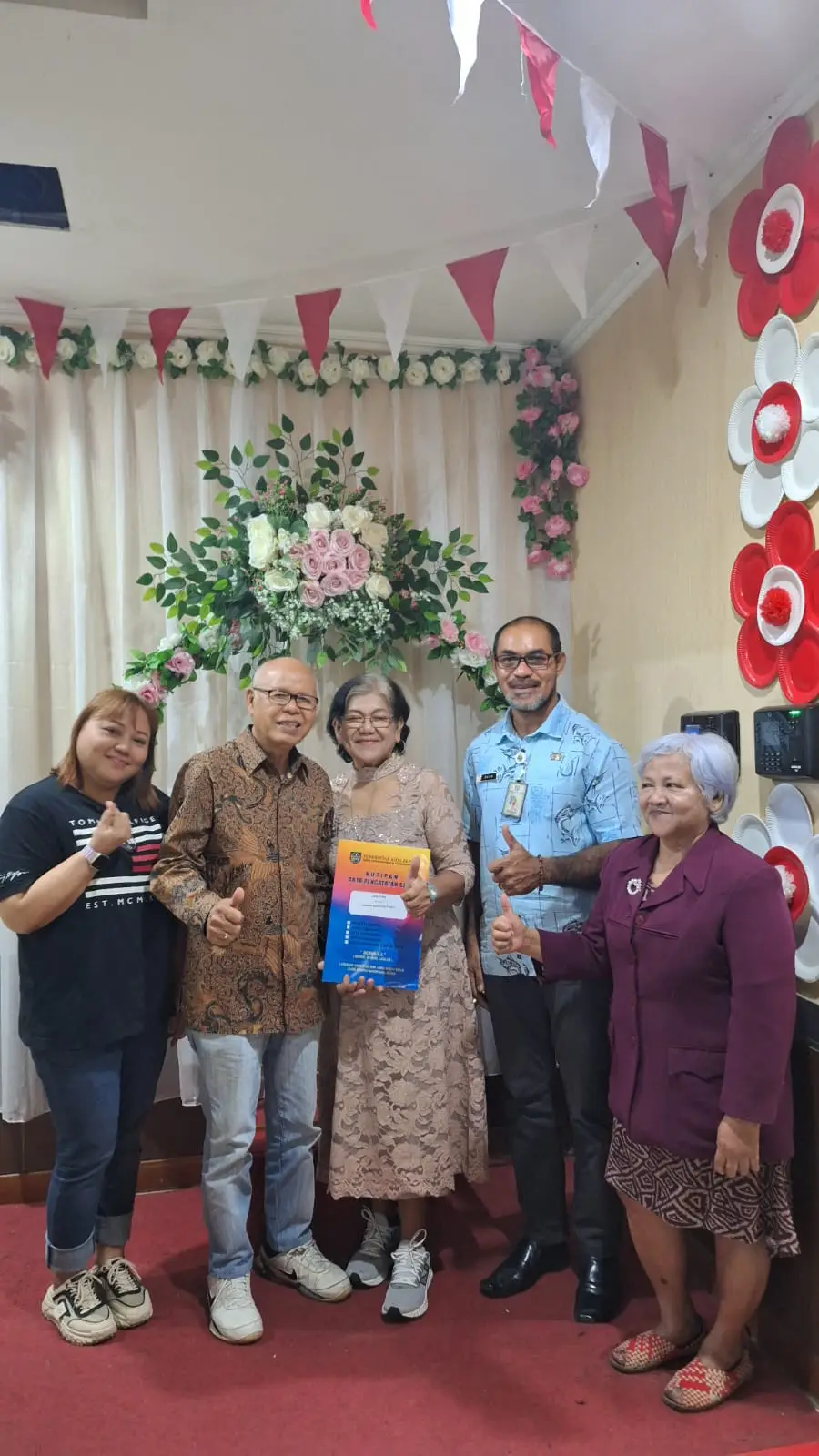The Depok Population and Civil Registration Office reminds the public not to delay marriage registration, whether for Muslim or non-Muslim residents. This step is important to ensure every marriage is legally valid and recorded in the population administration system.
The Head of the Depok Population and Civil Registration Office emphasized that marriage registration is not just an administrative process, but a form of legal protection for couples and their children.
“Religiously valid marriages are not recognized by the state if they have not been reported to the registration office. According to Law Number 1 of 1974 concerning Marriage and Law Number 23 of 2006 concerning Population Administration, every marriage must be registered. For non-Muslim residents, this is done at the Population and Civil Registration Office, while for Muslims it is done at the Religious Affairs Office,” she explained.
She added that marriage registration brings many benefits, from changing the status on the Family Card to ‘Registered Married’, to facilitating the issuance of a Child Legitimation Certificate which includes the names of both parents.
“This registration provides legal certainty and protection of rights for all family members,” she said.
The Depok Population and Civil Registration Office also emphasized that there is no time limit for registering a marriage. Non-Muslim residents can even do it for free through the online service SILONDO BERMULA (Online Service System of the Depok Population and Civil Registration Office: Clean, Easy, and Smooth) on the website.
Through this system, people who have been married in a religious ceremony with a religious leader can apply for registration online without having to come to the Population and Civil Registration Office. After all required documents are uploaded, officers will schedule a registration time, where the couple and witnesses must be present.
“Recently, we served an 80-year-old couple who just registered their marriage. That is proof that true love knows no age, and it’s never too late to legalize it,” she said proudly.
She also explained that couples in unregistered marriages can still be recorded in the Family Card with the status ‘Married But Not Registered’, according to Minister of Home Affairs Regulation Number 108 of 2019.
“Our task is to record, not to legitimize unregistered marriages. However, we ensure all residents are properly documented,” she stated.
To create a Family Card for couples in unregistered marriages, residents must attach a Statement of Absolute Responsibility signed together with two witnesses. Nevertheless, she still encourages couples to apply for marriage legalization to the Religious Court so that their marriage is officially recognized by the state.
“I always advise young people to marry officially at the Religious Affairs Office. If done on a weekday, the process is free. However, if they have already had an unregistered marriage, make sure the requirements and pillars are valid so that the marriage legalization can be granted,” she advised.
As for non-Muslim residents, she emphasized the importance of registering the marriage at the Population and Civil Registration Office after the blessing by a religious leader at a registered institution.
“This way, the couple will obtain a Marriage Certificate that is legally valid according to the state. The process is now easy, fast, and free of charge,” she affirmed.
She concluded by urging all Depok residents, both Muslim and non-Muslim, to work together to achieve orderly and accurate population administration.
“Every resident has the right to have complete and valid population documents. Don’t delay any longer, because registering a marriage means protecting the family’s future,” she concluded.






